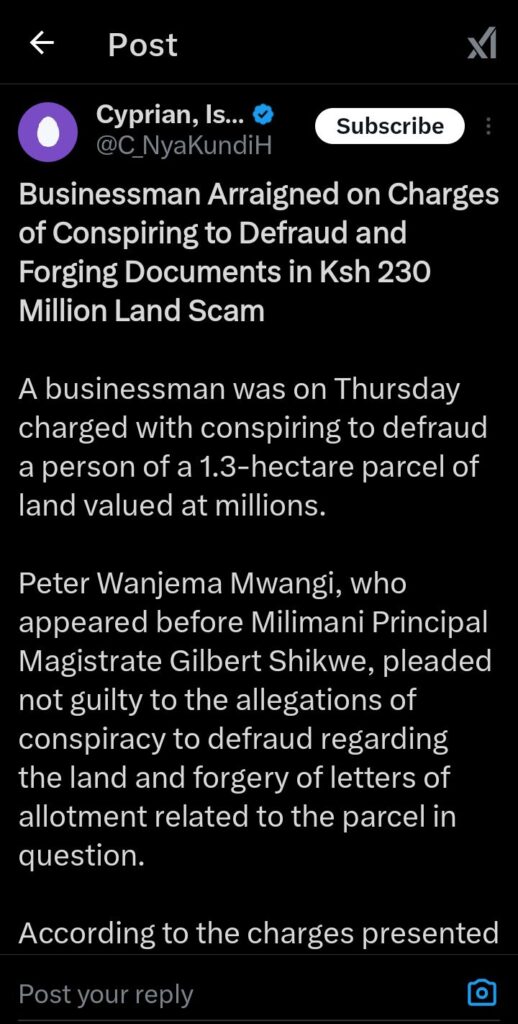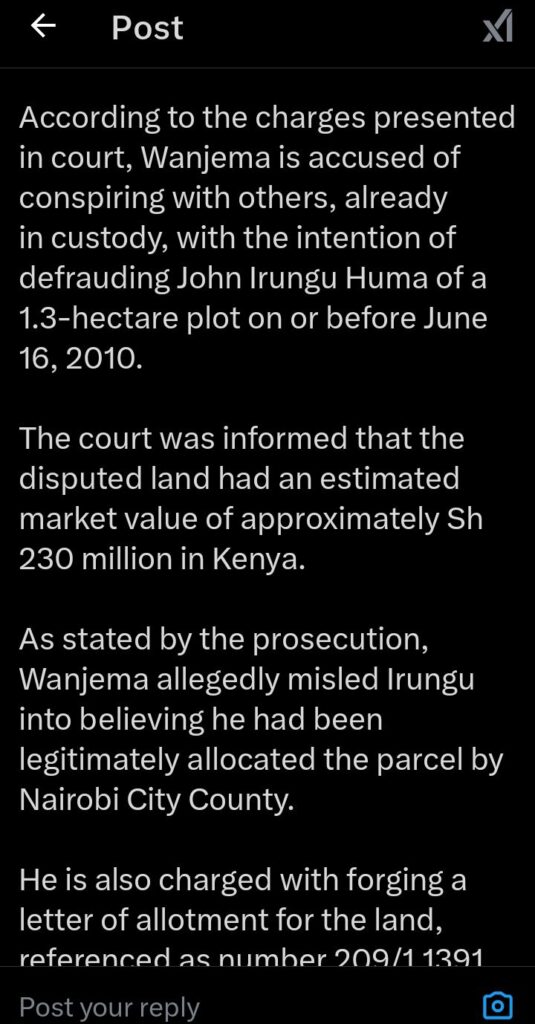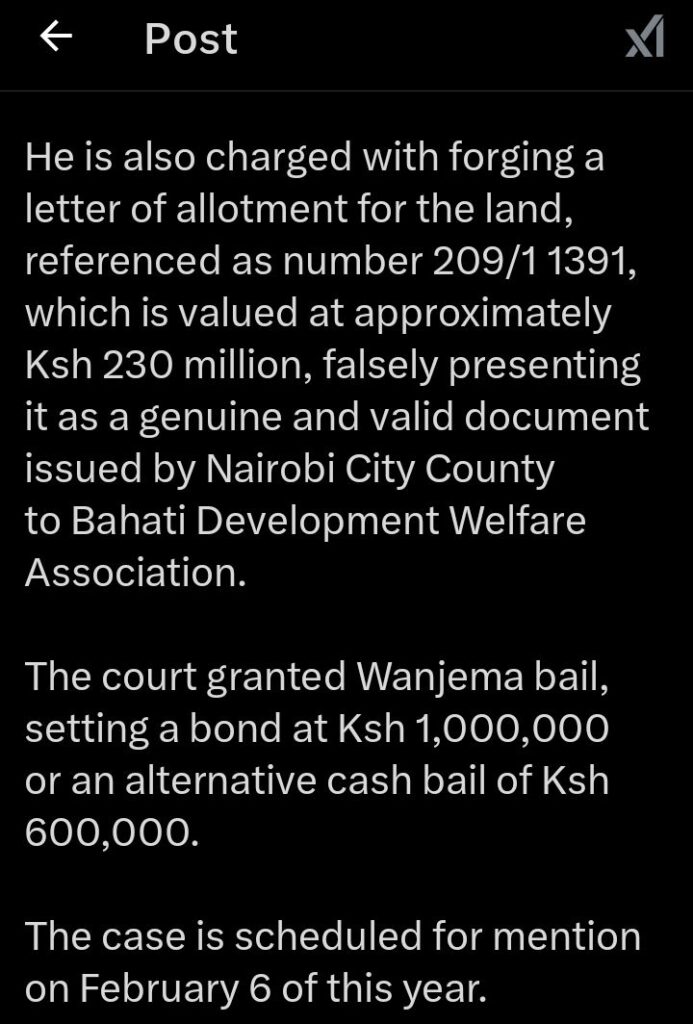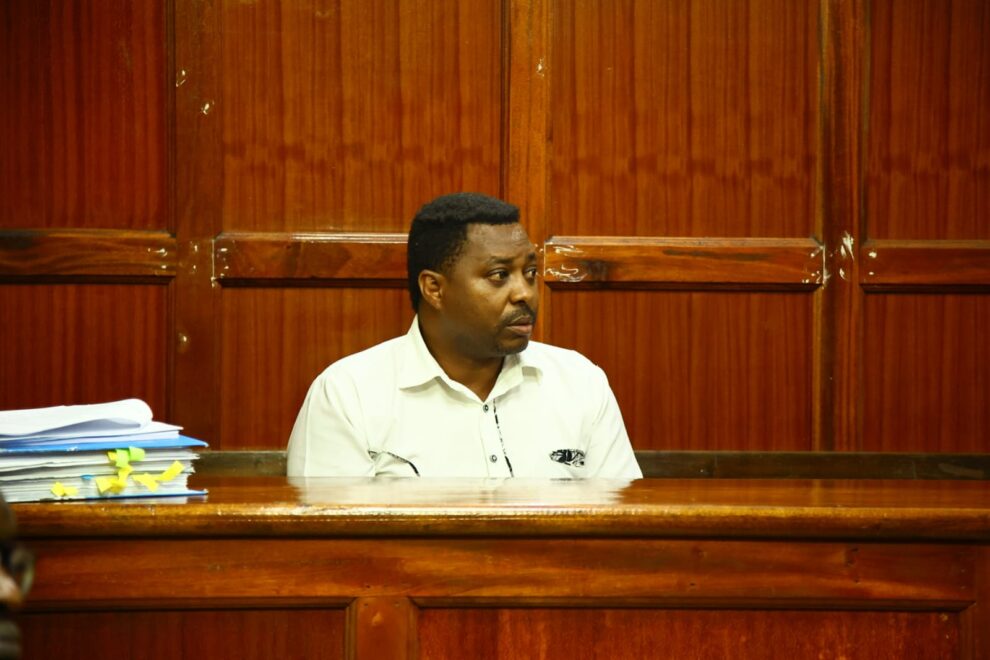Businessman Peter Wanjema Mwangi was recently charged with conspiring to defraud and forging documents in a Ksh 230 million land scam.
The case, which has captured public attention, was highlighted on X by Cyprian Nyakundi, a vocal activist often exposing scandals in Kenya.
Nyakundi raised serious questions about the integrity of land transactions and how such fraudulent schemes continue to thrive.

Appearing before Milimani Principal Magistrate Gilbert Shikwe, Wanjema pleaded not guilty to charges of conspiracy to defraud and forgery related to a 1.3-hectare parcel of land valued at approximately Ksh 230 million.
The charges indicate that Wanjema, together with others already in custody, is accused of attempting to defraud John Irungu Huma of the prime property.
The alleged crime took place on or before June 16, 2010, and involves claims that Wanjema presented forged documents to mislead Irungu.

According to the prosecution, Wanjema allegedly claimed to have been legitimately allocated the parcel by Nairobi City County.
He is also accused of forging a letter of allotment with reference number 209/1 1391.
This document was purportedly issued by the Nairobi City County to Bahati Development Welfare Association and falsely presented as genuine.
The prosecution argued that this act was part of a larger scheme to legitimize the fraudulent transaction.
The court granted Wanjema bail, setting a bond of Ksh 1,000,000 or an alternative cash bail of Ksh 600,000.
His case is scheduled for mention on February 6 this year.
While granting bail, the magistrate warned Wanjema to comply with court conditions and not interfere with ongoing investigations.
Cyprian Nyakundi, who shared details of this case on his X page, pointed out how such cases reflect deep-rooted corruption in Kenya’s land sector.
He questioned how forged documents could circulate so easily and called for greater accountability in the Nairobi City County.
Nyakundi also expressed concerns over the possibility of the accused using loopholes in the legal system to escape justice, a common occurrence in high-value fraud cases.
The Ksh 230 million valuation of the land shows how lucrative land fraud has become in Kenya.
Nyakundi noted that this case is just one of many involving wealthy individuals manipulating the system to deprive rightful owners of their property.

He urged Kenyans to remain vigilant and demand stricter laws to curb fraud in the real estate sector.
The case of Peter Wanjema shines a spotlight on the systemic issues in land ownership and allocation in Kenya.
While the legal process continues to develop, it raises larger questions about governance, accountability, and the protection of citizens from fraud.
The role of whistleblowers like Cyprian Nyakundi remains crucial in exposing such injustices and pushing for reforms in a flawed system.





















Add Comment